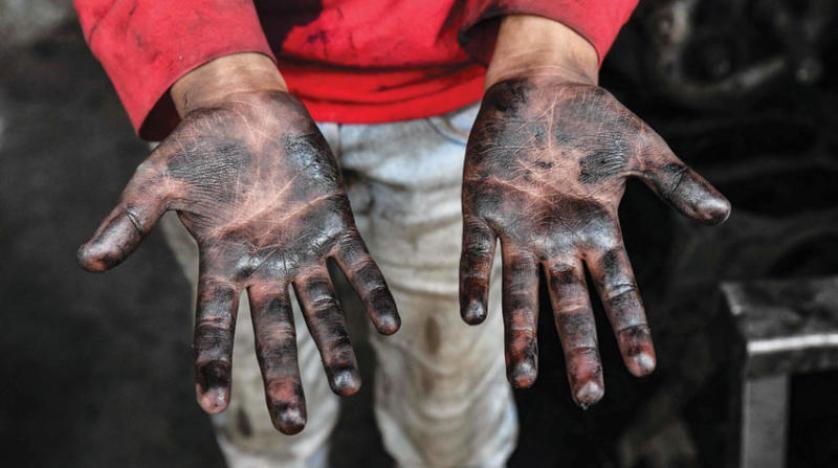Did Russia withdraw some of its forces from Syria after the Ukrainian war? What is the future of Arab normalization with Damascus? How serious is the recent presidential pardon decree in Syria? What is the fate of European sanctions? And how to deal with the economic crisis and the Russian ambiguity over the decision to extend the international mechanism for humanitarian aid across the border?
These were some of the “public questions” that European envoys to the Syrian file tried to answer in an unannounced meeting in Cyprus last week, with an understanding that Syria is the “graveyard of expectations” like other countries in the Middle East.
In Larnaca, on the shores of the Mediterranean and tens of kilometres from the two Russian bases in western Syria, the envoys held their “secret” meeting to exchange information about the Syrian situation, the prospect of European policy, and the repercussions of the Ukrainian war.
Read Also:
Before their closed meeting started, the envoys had to visit Nicosia and hear “the complaints of the Cypriot Foreign Ministry over Turkey sending Syrians to them by sea, or by air to Turkish Cyprus, to exert pressure on them and Europe in the immigration file.”
On the following day, European envoys and government representatives, including officials from Germany, France, Sweden and Ireland, held intensive discussions featuring an intervention by UN Envoy Geir Pedersen. Here are the most important topics:
What about the presidential pardon?
The amnesty issued by President Bashar al-Assad for “terror crimes” – which stipulated the release of around 2,000 people and the cancellation of security and arrest warrants for about 200,000 people – was described by representatives of the Syrian government as an “unprecedented step.” Foreign Minister Faisal Mekdad sent letters to some Arab foreign ministers, including Jordanian Ayman Safadi, praising the “exceptional decree.”
Read Also: 147 Arbitrary Arrests Documented in May: Syrian Network Humanitarian Law
The participants in the Larnaca meeting expressed two diverging stances:
The first group said that the decree that held the number 19 since 2011 was a “positive step.” They argued that it differed from the previous 18 decrees “because it deals with those accused of terrorism, that is, politicians.”
One of the participants quoted Mekdad as saying in an official meeting that there was a “decision to empty the prisons of detainees.”
Others spoke of the necessity of “not closing the door to the regime” but “encouraging it to adopt more similar moves.” They noted that the amnesty decision was taken in response to Arab requests and internal needs.”
Mekdad was informed that maintaining this path would be considered “an essential step for building confidence.”
The second opinion cautioned against welcoming the decree hastily, stressing the need to ensure that it was not a mere “propaganda step.” Participants said that “pressure must be made to allow institutions such as the International Red Cross to visit prisons and verify the actual number” of people who have been released.
One of the attendees also spoke about the presence of more than 100,000 people detained or missing in Syrian prisons, saying: “Amnesty will not change the image of Syria.”
What about Arab normalization?
There was consensus that Arab normalization with Damascus was ongoing, the question being “not whether it will happen, but when.” One of the participants said that if the European countries chose to wait for the implementation of Resolution 2254 before normalization, the lifting of sanctions and the contribution to the reconstruction, they might miss the train because Arab countries continue the normalization process.
There were some expectations about “non-urgent” bilateral normalization steps with Damascus, pending the Arab summit in Algeria in November when a collective Arab decision would be taken based on the prevailing political-regional atmosphere.
Representatives of major countries, such as Germany and France, emphasized the need to avoid making any step with Damascus until progress is achieved in implementing international resolution 2254. They highlighted the necessity to call for security and military reforms within the visions of UN envoy Pedersen for a “step-by-step” approach.
No one talked about lifting European sanctions on Damascus, but voices mounted calling for Europe’s contribution to support “early recovery” projects in Syria to alleviate the burdens of the economic crisis amid the political impasse and for talks with Russia to extend the humanitarian aid mechanism across the border, before July 10th.
What about Russia and Iran?
The Europeans exchanged information about the accuracy of Russia’s removal of some of its forces from Syria amid assurances of actual military withdrawals of Russian pilots and forces and estimates of the presence of about 4,000 Russian personnel in Syria.
One of the participants said: “There is information that Iran is filling the vacuum of Russian withdrawals and that Turkey is seeking to change the equations in northern Syria.” Others spoke of the need to wait months or a year before the effects of the Ukrainian war on Syria crystallize.
The general feeling expressed by more than one European envoy is “helplessness in the face of what is happening,” as if Syria will continue to face stagnation and suffering while awaiting a breakthrough.
One of the attendees’ only certainty is that the Middle East and Syria, in particular, “are the graveyards of expectations.”
This article was edited by The Syrian Observer. The Syrian Observer has not verified the content of this story. Responsibility for the information and views set out in this article lies entirely with the author.


